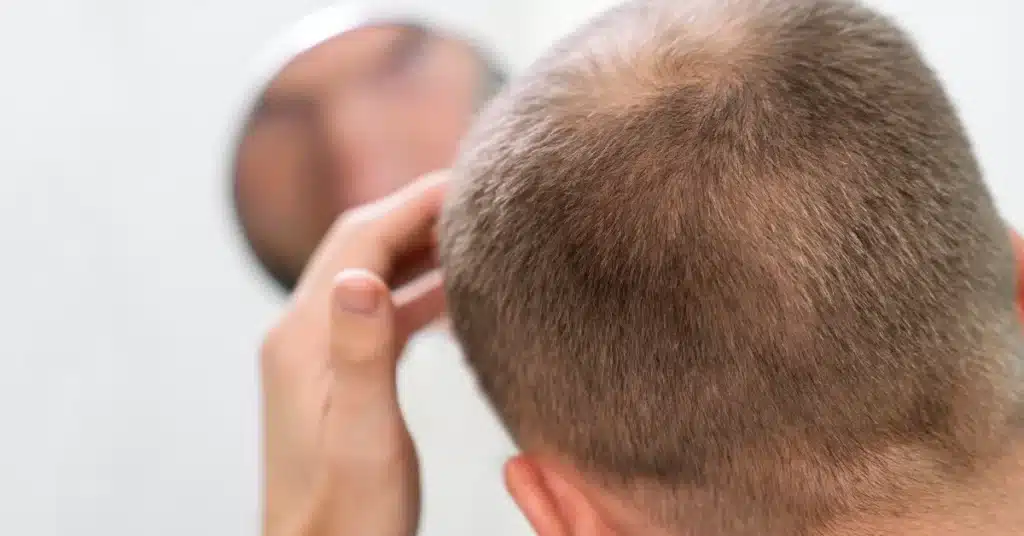Recognizing Low Testosterone Symptoms: When to Seek Help
Testosterone is a crucial hormone that plays a significant role in various aspects of a man’s health, including muscle mass, bone density, libido, and overall vitality.
When Testosterone levels fall below the normal range, it can lead to a range of symptoms that impact both physical and emotional well-being.
Low Testosterone can affect individuals of all ages.
Recognizing the symptoms of low Testosterone is crucial for timely intervention and appropriate treatment.
In this article, we will explore common low Testosterone symptoms, providing valuable insights into when it’s essential to seek medical attention for proper diagnosis and treatment.
Symptoms of low Testosterone
Recognizing the signs of low Testosterone is crucial for seeking timely intervention.
If you experience any of the following symptoms, it’s advisable to consult a healthcare professional:
Decreased libido and sexual function
One of the most noticeable symptoms of low Testosterone is a decline in sexual desire and performance.
Individuals may experience a reduced interest in sex, fewer spontaneous erections, and difficulties in achieving or maintaining an erection.
Fatigue and reduced energy levels
Low Testosterone levels can lead to persistent fatigue and a noticeable decline in energy levels.
Individuals may find themselves struggling to complete everyday tasks that were once routine.
Mood changes and irritability
Changes in Testosterone levels can affect a person’s mood, potentially leading to increased irritability, mood swings, and even symptoms of depression.
It’s important to acknowledge these shifts in emotional well-being and seek appropriate support.
Decreased muscle mass and strength
Testosterone plays a crucial role in maintaining muscle mass and strength.
Individuals with low Testosterone may notice a decrease in muscle size and overall strength, even with regular exercise.
Increased body fat and weight gain
Low Testosterone levels can contribute to an increase in body fat, particularly around the abdomen.
This shift in body composition can have implications for overall health and wellness.
Reduced bone density
Testosterone is essential for maintaining bone health and density.
Low levels of this hormone can lead to a decrease in bone density, potentially increasing the risk of fractures and Osteoporosis.
Hair loss and changes in hair growth

Changes in Testosterone levels can also impact hair growth patterns.
Individuals may experience hair thinning, especially on the scalp, along with changes in body hair distribution.
Sleep disturbances
Low Testosterone levels can contribute to sleep disturbances, including Insomnia or disrupted sleep patterns.
Addressing these sleep issues is crucial for overall well-being.
Cognitive decline and difficulty concentrating
Some individuals with low Testosterone may experience difficulties with concentration, memory, and cognitive function.
These changes can impact daily activities and overall quality of life.
Reduced testicle size
In some cases, low Testosterone levels can lead to physical changes, including a decrease in testicle size.
It’s important to note any physical changes and discuss them with a healthcare professional.
Can Low Testosterone Cause ED? Exploring the Connection
When to see a doctor

Recognizing the symptoms of low Testosterone is the first step towards addressing this condition effectively.
If you or someone you know experiences any of the aforementioned signs, it’s essential to consult a healthcare professional.
Here’s when you should consider seeking medical advice:
- Persistent symptoms: If you experience the symptoms mentioned above for an extended period, and they significantly affect your quality of life, it’s time to consult a doctor
- Changes in sexual function: Any notable changes in sexual desire, performance, or the ability to maintain an erection should prompt a medical evaluation
- Unexplained physical changes: If you notice unexplained changes in your body, such as testicle size or hair loss, a healthcare professional can assess their significance
- Mood and cognitive changes: Sudden mood swings, irritability, depression, or cognitive difficulties should not be ignored and warrant a doctor’s visit
- Chronic fatigue and sleep disturbances: If fatigue and sleep disturbances persist, even after making lifestyle changes, it’s crucial to consult a healthcare provider
Conclusion
Low Testosterone can significantly impact a man’s physical and emotional well-being.
Recognizing its symptoms is the first step toward effective intervention.
If you or someone you know experiences persistent changes in libido, energy levels, mood, muscle mass, or other mentioned signs, it could be because of low Testosterone levels.
In such cases, seeking medical advice is essential.
Timely intervention can lead to appropriate treatment, ultimately improving overall quality of life.
Don’t hesitate to consult a healthcare professional and take charge of your hormonal health.
Frequently Asked Questions
What are the main causes of low Testosterone?
Low Testosterone can stem from aging, obesity, medication effects, and chronic illnesses. Understanding these potential causes is crucial for effective diagnosis and treatment. Consulting a healthcare professional is key to addressing this condition.
How is low Testosterone diagnosed?
A healthcare professional will typically conduct a thorough assessment, including a physical examination and blood tests to measure Testosterone levels. Additional tests may be performed to identify any underlying causes.
What are the treatment options for low Testosterone?
Treatment options for low Testosterone may include Hormone Replacement Therapy, lifestyle modifications (such as exercise and a balanced diet), and addressing any underlying medical conditions contributing to the low levels.
Can low Testosterone be prevented?
Embracing a healthy lifestyle, including regular exercise, balanced nutrition, and stress management, plays a pivotal role in maintaining optimal testosterone levels. Timely medical attention and weight management further contribute to reducing the risk of low Testosterone, even in the face of inevitable factors like aging.
WowRx uses only high-quality sources while writing our articles. Please read our content information policy to know more about how we keep our content reliable and trustworthy.






